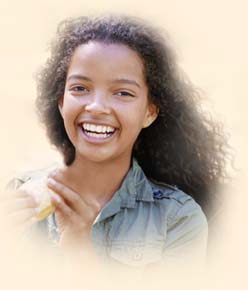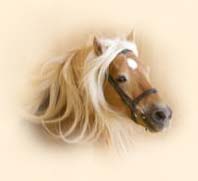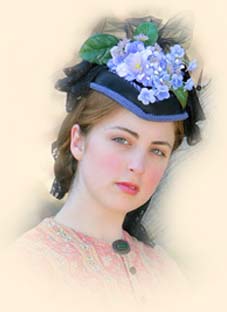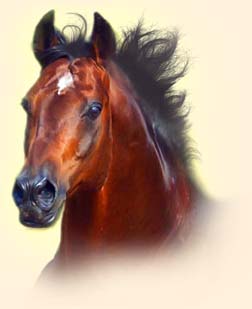Excerpt from
Turning on a Dime
~ 1 ~
Samantha
Connecticut, present day
Nugget flicks his ears as we trot down the centerline. Our approach is crooked and I can see Dad watching us, frowning beneath the brim of his faded Red Sox cap. It’s been a bad ride—two botched half passes, three rough transitions, and an extended trot that felt more like harness racing than a dressage test.
Sweat trickles slowly down my neck. It creeps between my shoulder blades and lays its sticky fingers on my spine.
I’d give anything to wipe my face, but I can’t because that’s not what you do, even when you’re only practicing. You’re supposed to smile and pretend to be having a great time, never mind that your legs are now shattered and want to disown you.
“Samantha, don’t sit there like a potted plant,” Dad hollers. “Hielen omlaag.”
That’s Dutch for “Heels down.”
My father is third-generation American but his family is from Holland and he’s taught me enough Dutch to get along when we go over there.
“And, Samantha,” Dad says, just to rub it in, “ballet lessons are on Tuesdays.”
I guess he didn’t like my pirouette at the canter that probably looked as if I were torturing poor Nugget. “Not your fault,” I whisper, patting his sweaty shoulder.

Nugget is not your typical dressage horse. He’s not a rich, dark brown or an elegant bay with white socks and a perfect star. He’s a flashy chestnut gelding with a blond mane and tail that my mother says would put Farrah Fawcett to shame.
“Who’s she?” I’d asked over dinner.
Mom and Dad had exchanged glances. My brother Erik had laughed and slapped his thighs. “Hot babe.”
“Charlie’s Angels,” Mom said.
“Huh?”
“Before your time,” Erik said.
He’s nineteen, only four years older than I am, but sometimes he turns those four years into a generation. He likes the old movies and TV shows that my parents like. I couldn’t care less about any of them. If it’s got a horse in it, I’ll watch it; otherwise—
My phone rings.
Dad hates it when I interrupt our lessons to take a call, but it might be Jenna, so—
“We won!” she yells.
Dad’s explanation about flying changes goes in one ear and out the other. “What?” I yell back.
“The beach lottery, you idiot.”
“You’re kidding.” It’s not easy, listening to Dad while Jenna’s shouting at me.
But, wow . . . the beach lottery?
It’s a huge deal around here—well, for horse people it is. The winners get to ride on a private beach in midsummer which means we’ll be riding bareback in bathing suits, jumping waves, and swimming with our horses. This is not something you can do at our town beach.
The lifeguards would have a meltdown.
They go ballistic if you walk a dog on the sand, never mind ride a horse. You can only do it in winter when it’s freezing cold and you’re bundled up like an Eskimo.
“Earth to Sam,” Jenna intones. “This is not a joke.”
“When?”
“Sunday,” she says.
My heart sinks. “I can’t.”
“Yes, you can,” says my father. “You just need more leg on the girth and Nugget will—”
Trouble is, he’s not talking about the beach lottery, which I never thought Jenna and I had a chance of winning. But I can’t let Dad down. We’re flying to Mississippi this weekend to look at horses and I’ll be riding them for him.
My father doesn’t ride any more.
Two years before I was born he was shortlisted for the Olympics. But a freak accident put him out of action when his horse crashed into a double oxer, trapping Dad beneath it and shattering his left knee into a dozen tiny pieces.
His Olympic dream now burns inside me.
Samantha DeVries—rhymes with freeze—the first African American to ride in the Olympic Games.
“Sam,” Jenna says, “wake up.”
Dad’s still talking—something about half-halts and my outside rein—but I’m not paying attention, even though I desperately need to. If I want to realize my dream—and his—I have to work harder.
My father’s name, Lucas DeVries, opens many doors in the horse world, but as he keeps reminding me, I need to be good enough to actually ride through those doors.
“I’m here,” I say.
“Not this Sunday,” Jenna says, laughing. “Our beach ride is next Sunday.” There’s a pause. “After you get back, okay?”
“Okay,” I say.
Undeterred, my father nods. “I’m so glad you understand,” he says. “Now let’s get on with this lesson, and then you need to work on your judo.”
Dad’s teaching me that as well.
He says it helps with balance and coordination. It also helps with the bullies at school. They’ve learned not to mess with me any more.
* * *
Mom leans against the doorframe while I pack. She’s the guardian angel of teenage travelers. If she weren’t here prodding me, I’d wind up in Mississippi with ten pairs of woolly socks, no bras, and a ratty old toothbrush I scrubbed Nugget’s bit with.
“You need a trim,” she says.
I run a hand through my thick hair. It hangs below my shoulders, and trying to squash it all into a bun so I can cram my riding helmet on without giving myself a headache is a major challenge.
“Next week,” I say, pawing through piles of laundry for clean t-shirts and breeches that don’t have holes in them. Mom looks around my room. She sighs, and I know what’s coming next.
“Isn’t this all a bit . . . much?”
And I grin, because of course it is.
My bedroom is exactly what every horse-crazy girl wants—wall-to-wall posters of show jumpers, ribbons strung about like bunting, and photos of every pony you’ve ever ridden pinned all over your bulletin board. Oh, and let’s not forget the Breyer models, the shelves full of dog-eared favorites like Black Beauty and My Friend Flicka, and that wooden rocking horse you can’t bear to get rid of because you still ride it when nobody’s looking.
Flopping onto my bed, I wrap myself in the pony-print comforter Mom bought me when I was ten. No way will I give all this up—even when I get married, which my brother says will never happen because whoever marries me would have to marry my horse as well.
Yeah, right.
The cute guy I’m crushing on rides a snowboard, not a horse. Plus, he’s a senior and I’m a sophomore. He has no clue I exist because he lives on another planet with razzle-dazzle snowboards and snow bunny cheerleaders dressed like Icicle Barbie.
“How did your lesson go?” Mom says, twisting the pearl ring she always wears—even at the beach.
The beach?
“Guess what?” I say. “We won.”
“The beach lottery?”
“Yeah.”
“Awesome.” Mom gives me a high five like I knew she would, then she does a happy dance around my room. This is what I love about my mom. She totally gets being a teenager. “When is it?”
“Sunday.”
“But you won’t be able to go.”
“Next Sunday,” I say. “After we get home.”
“Which reminds me. You’d better pack a dress.”
I sit up. “What?”
“You know,” my mother says, rolling her eyes the way I do. “A garment that doesn’t require you to stick both legs into it separately.”
Hangers rattle as Mom rummages through my closet and pulls out a lime green dress with puffy sleeves I vaguely remember wearing in eighth grade. She holds it up and we both shake our heads.
“Okay, so how about this?”
That’s better. A jeans skirt I can handle.
“With proper shoes,” she adds. “Not paddock boots or sneakers, okay?” From beneath my dresser she pulls out a pair of dusty espadrilles.
I can handle those, too.
After Mom leaves, I shove the important stuff into my knapsack—iPhone, earbuds, and a photocopy of Nugget’s pedigree. I’m taking it with me because some of my horse’s ancestors were bred in Mississippi and I’m hoping to find out more about them.
There are more than fifteen generations on the pedigree. I’ve memorized the recent ones, but not those further down the list. Most say grade mare or unknown which doesn’t give me a lot to go on.
Mom’s the one who got me started on this. She’s digging into her own past and spends hours online with genealogy databases trying to find out more about her history. Right now, she’s stuck at 1875; and no matter what lead she follows, she can’t seem to get any further back.
I hope I have better luck.
* * *
Most of our horses are sleeping when I slip into the barn. The younger ones are lying down, eyes closed and totally relaxed, but the older ones sleep standing up.
Nugget is wide awake.
He whickers as I open his stall door, then nudges my pockets for a treat.
“You are so spoiled I say,” feeding him apple chunks and carrots. He slobbers juice down my t-shirt. “Be good for Jenna, okay?”
She’s coming over to help Mom with the horses while Dad and I are gone. We’ll be home on Monday—three days from now—and already it feels like a lifetime away. I guess it’s because we’re going to a place I’ve never been before.
~ 2 ~
Caroline
Mississippi, July 1863
The minute my parents’ carriage leaves our driveway, I bolt from my room and race down the stairs. With luck, I’ll be able to slip outside without being seen. But I have to be careful. Mama’s spies—the housekeeper, the cook, and the upstairs maid—are everywhere and they know I’ve been forbidden to go to the barn.
No horses, no riding for a week.
My punishment is supposed to end tomorrow, but last night, Mama dropped a cannon ball. I’m to spend the next five days visiting friends—hers, not mine—and they’re sending a carriage to pick me up later this afternoon. If I don’t risk seeing Pandora now, I won’t get to see her till next Thursday.
Gathering up my cotton skirts, I leap down the last three steps and land on the foyer’s wet marble floor. Mops, brushes, and soapy water go flying as I slide in a most unladylike fashion into Mama’s favorite bombé chest.
“Ouch.”
I’d say a lot more—like the words I’ve learned from my brother—but there’s a slave girl cowering in the corner. She looks at me, eyes wide with fright as if expecting to be beaten.
“You’re new here, aren’t you?” Struggling to my feet, I rub my sore elbows and want to rub the bits of me that really hurt, but don’t dare because the girl is watching.
She nods, tense as a coiled spring.
In her slender brown hands, she holds a small book. It looks like a diary of some sort. But slaves can’t read or write because nobody teaches them; it’s not allowed. So what is this girl doing with a book?
“Give it to me,” I say.
Reluctantly, she hands it over. Its yellowing pages are covered with lines of neat writing, and it reminds me of my lessons with Alice Hamilton whose precise penmanship caused Mama to reach for her smelling salts. After she recovered her equilibrium, Mama dismissed our tutor and found another, but it didn’t do any good. My handwriting is still illegible.
“Is the book yours?” I say.
The girl makes a choking sound. She can’t be any more than fifteen, the same age as me.
“What’s your name?” I say.
“Pearl.”
“The housekeeper will be angry if she catches you with this,” I say, closing the book and giving it to her. “You’d better hide it, and then you’d better clean up this mess.”
“Yes, ma’am,” she says.
Her big brown eyes are like the pansies in my mother’s garden. For a moment she stares at me as if we’re equals—just a couple of girls who’ve been caught breaking the rules.
None of the other slaves do this. They always look down and shuffle off. Feeling an odd sense of guilt that I can’t explain, I limp into the dining room and scoop two rosy red apples from a bowl on the table.
Another sin.
“I’ll keep quiet about your book,” I say, hiding the apples beneath my shirt, “if you promise not to tell you saw me.”
“Are those for the horses?”
Her voice is barely above a whisper, yet it sounds loud enough to draw Mama’s maid from the parlor. If she catches me here, I’ll be in more trouble than I already am.
I catch my breath. “Yes.”
With a secret little smile, the slave girl nods and picks up a mop.
* * *
My bootlaces snap like buggy whips as I race into the barn. I stop to retie my leather bows and a lock of hair falls loose from my messy braid.
Mama calls it “honey brown.”
It’s not. It’s just plain old brown, but Mama likes to dress things up with fancy words. She says my sister’s hair is like spun gold, and she’s always making Louise rinse it in lemon juice to turn it even lighter. There are times I want to drink my sister’s hair, especially on hot days like this one.
Horses—black, brown, and chestnut—stick their heads over stall doors as I run down the barn’s wide center aisle. But I can’t resist Papa’s gorgeous horses, so I stop to pat noses and stroke forelocks.
These are the famous Chandler horses that my father’s family has been breeding for almost fifty years. Some are munching hay; others have flecks of grain on their whiskers. Unlike me, they’ve already had breakfast. I pull out an apple and sink my teeth into it. Juice dribbles down my chin as I approach the last stall—Pandora’s.
For a moment I stop and just look at her.

She’s the most gorgeous horse in the world—a bright bay with wide-set eyes, a black tail that almost reaches the ground, and a perfect little star in the center of her forehead. She whickers hopefully, so I feed her the rest of my apple.
“Pandora,” I say, “I’ve missed you.”
She tries to whicker again, but slobbers juice down my shirt instead, adding to the mess I’ve already made. I move her silky black forelock to one side and plant a kiss on her star.
“I wanted to come and see you,” I say, opening her stall door, “but Mama wouldn’t let me out of the house.”
Pandora gives a little nod as if she knows all about it. Well, she does, because last Friday I rode her bareback into the duck pond. She loved it and so did I, but the stupid ducks ruined everything. They quacked loud enough to spook Pandora and wake Mama from her nap. She looked out the window in time to see me sail off Pandora’s back and land in two feet of muddy water. I was confined to the house for a week and forbidden, yet again, to ride bareback.
“But, Mama,” I wailed, “would you rather I ruin my saddle?”
“No, I’d rather you didn’t embarrass this family by riding like a farm boy,” my mother said. “You’re fifteen years old, Caroline Chandler. It’s time you started acting like a young lady.”
I wrap my arms around Pandora’s well-muscled neck.
Oh, dear.
I’m not supposed to think about muscles. That’s what boys have—and horses—but girls aren’t allowed to notice or even learn about them.
Fortunately my father has books on equine anatomy in his library and I’ve borrowed quite a few. The last time I was in there I picked up one of Papa’s science magazines because it had a horse on the cover. Flicking through it I found a short story about a man who traveled into the future. They had flying machines and horseless carriages and tall buildings that reached to the sky. It’s amazing what you can learn from a book.
Quite shocking, really.
Mama would lock me up forever if she found out what I’d been reading. Some of it makes me blush redder than the apples I stole from the dining room table, especially the part about foals being born.
I think Papa knows, though.
But he hasn’t said anything. He just gives me knowing smiles and sometimes asks questions that I’m not supposed to know the answers to, but I do.
“Mama even made me practice the piano,” I whisper into Pandora’s black mane. “Then she insisted I try on that horrible pink dress. It’s got dozens of buttons and too many ruffles, and when she laced me into that awful corset, I couldn’t breathe.”
Louise, my older sister, is getting married in September and I’m to be one of the bridesmaids. The thought of wearing long gloves and a hat with ribbons and flowers appalls me. Hoping for sisterly sympathy, I’d turned to Louise but discovered that she was mad at me too.
Pandora nuzzles my hand, so I give her the other apple. Nobody else rides her because she won’t let them. When Papa first figured this out he tried to sell Pandora but couldn’t find a buyer. Not even the Confederate Army was willing to take a chance on a mare that threw everyone, except me, off her back.
It was the trainer’s fault.
After I’d done all the basics with Pandora—ground driving and long-lining—she showed such promise that Papa sent her to a professional trainer who, we found out later, used sticks instead of carrots. So Pandora attacked him and got sent home in disgrace. After that, she never allowed another man on her back, not even my brother, Theo, who’s as gentle with horses as I am.
“I’ll come back in a minute,” I tell her, giving her sweet nose another kiss. “And we’ll go for a ride. But first, I have to change my clothes.”
Hitching up my skirts, I look at my bare legs.
No pantalettes, no petticoats, either. Just this horrible skirt that I’ll get rid of as soon as I retrieve my brother’s old breeches that I’ve hidden in the hayloft.
A clump of hay lands at my feet.
I look up.
Another explodes all over my face.
“Theo Chandler, I’ll get you for this,” I say, spitting out seeds and bits of hay. “What are you doing up there?”
“Waiting,” says my brother.
